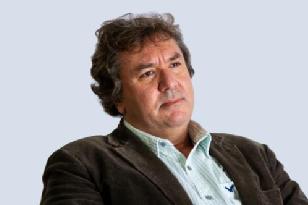WMS Events Calendar
Please see this page for MB ChB events.
BMS Special seminar: An integrated mechano-response mediated by ATR and ATM, Professor Marco Foiani, Professor of Molecular Biology, Department of Oncology and Hematology-Oncology, University of Milan
Abstract: ATM and ATR DNA damage response kinases contain elastic domains. We previously showed that ATR also responds to nuclear mechanical stress preventing nuclear envelope collapse and ruptures. We found that also ATM is involved in the response to mechanical stress. Cytoskeleton mediates ATM activation following cell deformation and ATM deficiency causes cell hyper-stiffness, stress fiber accumulation and YAP nuclear enrichment. ATM locates to actin cytoskeleton and, following cytoskeleton stress, promotes recovery by modulating cytoskeleton and chromatin. Our data contribute to explain some clinical features of A-T patients and pinpoint the existence of an integrated mechano-response in which ATM and ATR have distinct roles, unrelated to their canonical DDR functions.
 Biography: Professor Marco Foiani studied at the University of Milan and moved to NIH-USA (1989-91) in the laboratory of dr. Alan Hinnebush for his postdoctoral training. He continued his career at the University of Milan and, since 2000 also at IFOM. Foiani has studied different cellular processes (translational, chromosome replication, DNA recombination, DNA repair, DNA topology and nuclear envelope dynamics) and regulatory pathways (translational control, cell cycle, checkpoint, gene gating) using a variety of approaches (biochemical, genetic, imaging, genomic, molecular biology). His major contributions are within the fields of chromosome dynamics and genome integrity. His work has contributed to elucidate the ATR and ATM-dependent checkpoint processes controlling the interfaces between DNA replication, recombination, transcription and DNA topology and preventing abnormal chromosome transitions. In recent years he has been studied the connections between cell metabolism and genome integrity pathways and between chromosome dynamics and mechano-transduction circuits controlling cell and nuclear plasticity.
Biography: Professor Marco Foiani studied at the University of Milan and moved to NIH-USA (1989-91) in the laboratory of dr. Alan Hinnebush for his postdoctoral training. He continued his career at the University of Milan and, since 2000 also at IFOM. Foiani has studied different cellular processes (translational, chromosome replication, DNA recombination, DNA repair, DNA topology and nuclear envelope dynamics) and regulatory pathways (translational control, cell cycle, checkpoint, gene gating) using a variety of approaches (biochemical, genetic, imaging, genomic, molecular biology). His major contributions are within the fields of chromosome dynamics and genome integrity. His work has contributed to elucidate the ATR and ATM-dependent checkpoint processes controlling the interfaces between DNA replication, recombination, transcription and DNA topology and preventing abnormal chromosome transitions. In recent years he has been studied the connections between cell metabolism and genome integrity pathways and between chromosome dynamics and mechano-transduction circuits controlling cell and nuclear plasticity.
